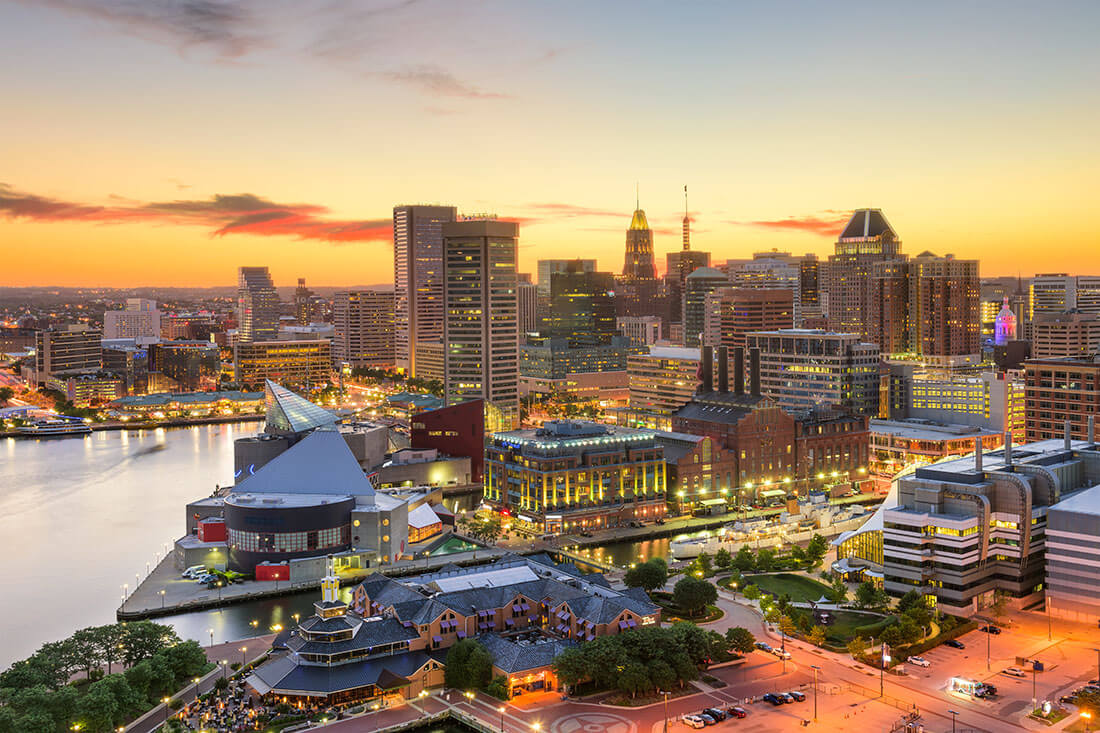Friday Five
Feb. 20, 2026 | This week's latest on Maryland business and government
1 — Dynamic pricing bill could backfire, ‘eliminate’ targeted consumer discounts, merchants warn
Lawmakers are considering Senate Bill 387 to ban “dynamic pricing” in Maryland grocery stores, a practice opponents say could lead to individualized price changes based on consumer data, but retail groups warn the broad language might also bar beneficial targeted discounts and loyalty promotions. Supporters, including Governor Moore, argue restrictions are needed to prevent unfair price manipulation using surveillance data, though critics on both sides question whether the problem is as widespread as it is claimed.
Skeptics: Senate Republicans and trade representatives are skeptical about whether dynamic pricing is truly occurring in Maryland's retail establishments.
2 — Maryland lawmakers want to end tax breaks for drug ads
Maryland lawmakers are pushing a bill to eliminate tax breaks for pharmaceutical companies’ direct-to-consumer advertising, arguing that those marketing costs ultimately contribute to higher prescription and overall health care prices paid by businesses, governments and patients. They propose requiring drug makers to calculate and pay state tax on advertising expenditures, with any new revenue directed toward Medicaid and the Maryland Health Benefit Exchange, though opponents warn it could be difficult to apportion ads by state and could face implementation challenges.
Slippery slope: Of particular concern is the precedent this bill would set. If Maryland begins selectively disallowing business expense deductions for a specific industry or activity, it raises broader questions about the stability of the state's tax code. If passed the bill would go into effect in July.
3 — Trump administration completes rollback of Obama-era greenhouse gas regulations
Government officials have finalized repealing the longstanding “endangerment finding” that empowered the EPA to regulate greenhouse gas emissions as harmful to public health, effectively removing the legal basis for federal climate controls on vehicles and other major pollution sources. Trump and EPA leaders framed it as a huge deregulatory win to reduce costs and regulatory burdens, but critics warn the rollback significantly weakens U.S. climate policy and could invite legal challenges and broader increases in emissions.
To be expected: Democratic attorneys general and environmental groups across the country are likely to sue over the rollback.
4 — How much money and jobs would a Sphere at National Harbor generate? New figures are out
Revised estimates show that the proposed Sphere entertainment venue at National Harbor could generate about $1.3 billion in annual economic impact for the region, support roughly 3,350 construction jobs and some 7,100 permanent jobs once open, as well as draw more than 2 million visitors a year. Officials tout the project as a major tourism and employment boost for Prince George’s County and Maryland’s economy, though it remains in early planning stages and must still secure approvals and financing.
Dollar signs: Prince George’s County Executive Aisha Braveboy said tax revenues alone from the new project would more than triple what the county has been getting from the Six Flags amusement park in Bowie that closed late last year.
5 — Small business owners squeezed by Trump tariffs await Supreme Court decision
Small business owners across the region say rising costs from President Trump’s expansive tariff policies have squeezed profits, forced price increases, and led some to delay expansion or lay off workers as they wait for a pivotal U.S. Supreme Court decision (which was made today) on whether those emergency-based tariffs are legal under federal law. The case, heard last year, could determine not only the future of hundreds of billions in duties but also whether affected businesses might recoup costs or face higher expenses indefinitely if the tariffs are upheld.
From the White House: “In addition to slashing regulations and lowering energy costs, the Trump administration signed the largest Working Families Tax Cut in history to unleash unprecedented growth for small businesses with a permanent 20% tax deduction and full expensing of equipment investments,” said spokesperson Taylor Rogers.
Advancing inclusive partnerships for a Maryland where all businesses and their communities thrive
The Maryland Chamber of Commerce is the state’s leading business advocacy organization — committed to working with our alliance of partners on critical public policy issues. With a focus on economic development and grassroots advocacy, we impact policies that directly affect Maryland business.

